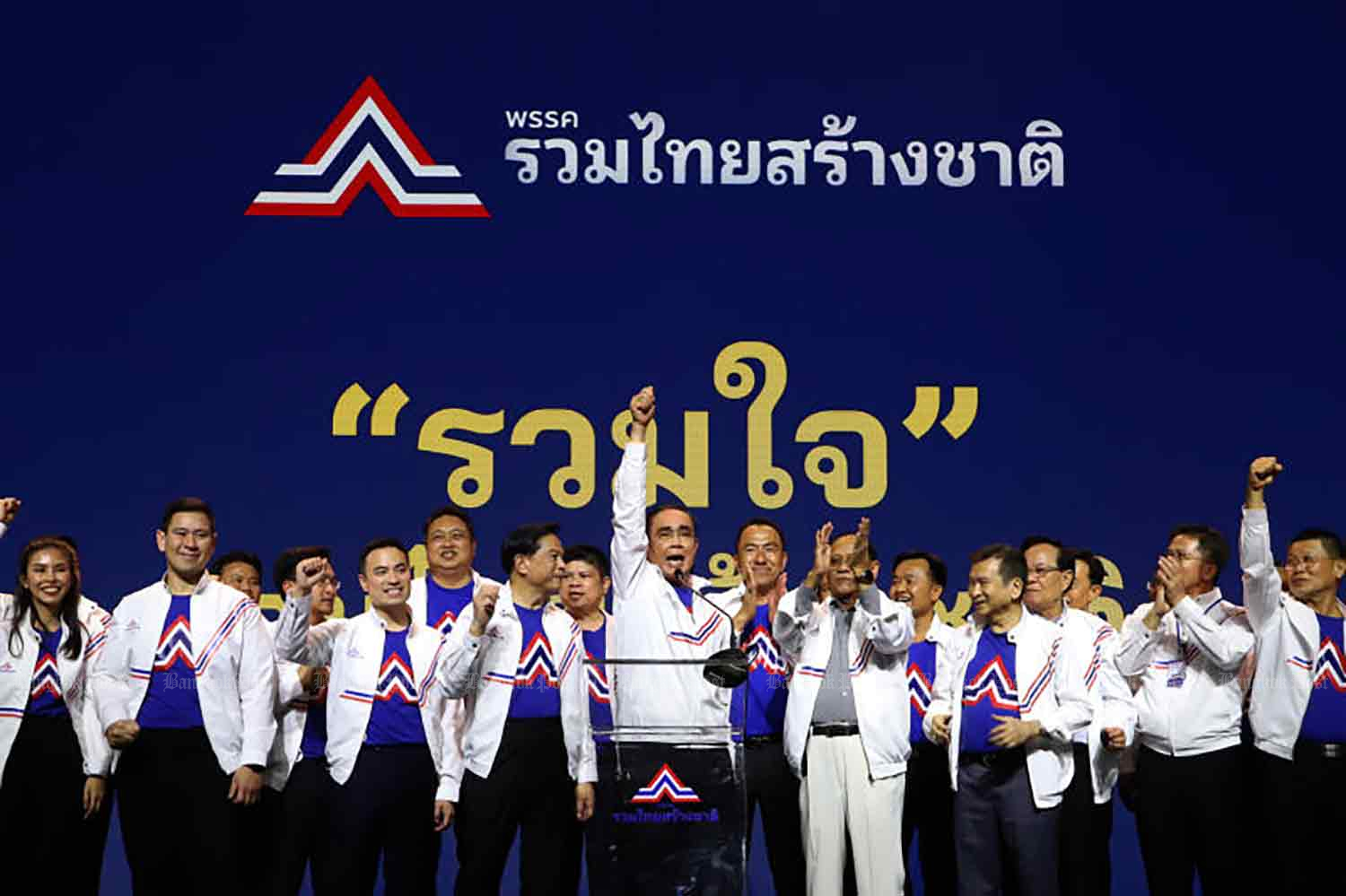
Prime Minister Prayut Chan-o-cha has been named chief strategist of the United Thai Nation Party (UTN), according to party leader Pirapan Salirathavibhaga.
Gen Prayut's appointment is in accordance with a resolution passed on Jan 9 by a special assembly, Mr Pirapan said. The party's committee on policy and strategy is scheduled to meet once a week, and Gen Prayut can attend via Zoom, he said.
The 15-member panel is tasked with directing policy and strategy and advising the party's executive board on political activities.
Other members include Mr Pirapan, UTN secretary-general Akanat Promphan, Trairong Suwannakhiri, and Seksakol Atthawong.
The news about the prime minister's party position came after reports that Gen Prayut, who officially joined the UTN on Jan 9, has secured the No.1 spot on its party list.
Gen Prayut is reported to have attended his first meeting with the party leader and executives on Jan 31, and the UTN agreed to place him at the top of its party list.
In an interview during an inspection trip in Samut Songkhram province on Friday, Gen Prayut declined to comment on his role at the UTN and reported that he would contest the general election via the party-list system.
The prime minister brushed aside a call to dissolve the House by deputy parliament speaker Supachai Phosu, who cited the frequent collapse of House meetings due to quorum issues to support his demand.
Gen Prayut said he was told by government coalition parties that the meetings collapsed due to disagreements among MPs over controversial bills.
"I'm in the executive branch and never interfere with the legislative work," he said.
Deputy Prime Minister Wissanu Krea-ngam said on Friday the House meeting collapses do not justify dissolving the body, a move that cannot take place before the Election Commission (EC) finishes redrawing the constituency map.
However, he said the electoral map is expected to be published in the Royal Gazette by Feb 28 or sooner because the EC's regulation on electoral boundaries has already taken effect.
The regulation serves as a guideline for provincial election offices to draw up electoral boundaries for the 400 constituency MPs nationwide.
According to Mr Wissanu, provincial election offices across the country must present at least three draft maps to gather public input, a process that will take ten days before the findings are submitted to the EC for consideration.
Meanwhile, the Bangkok election office is urging the public to comment on the draft electoral maps at the public hearing process, which will run until Feb 13.







